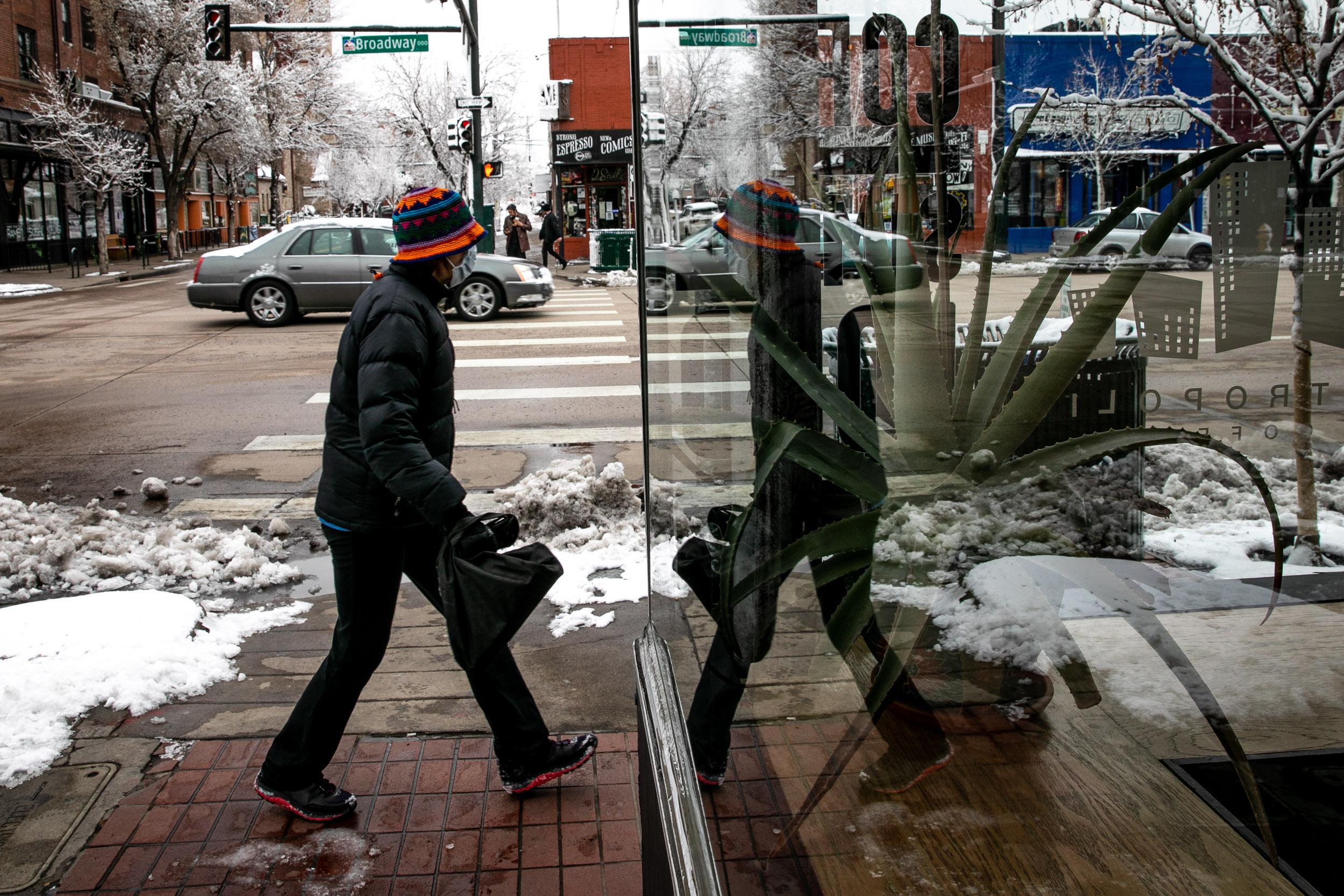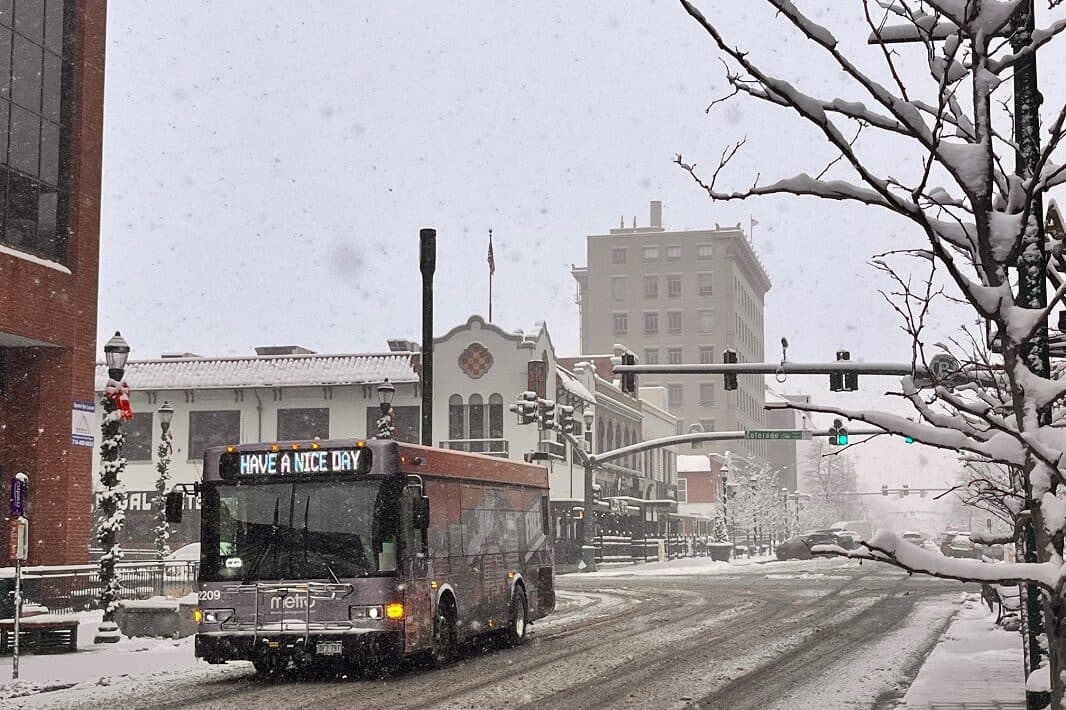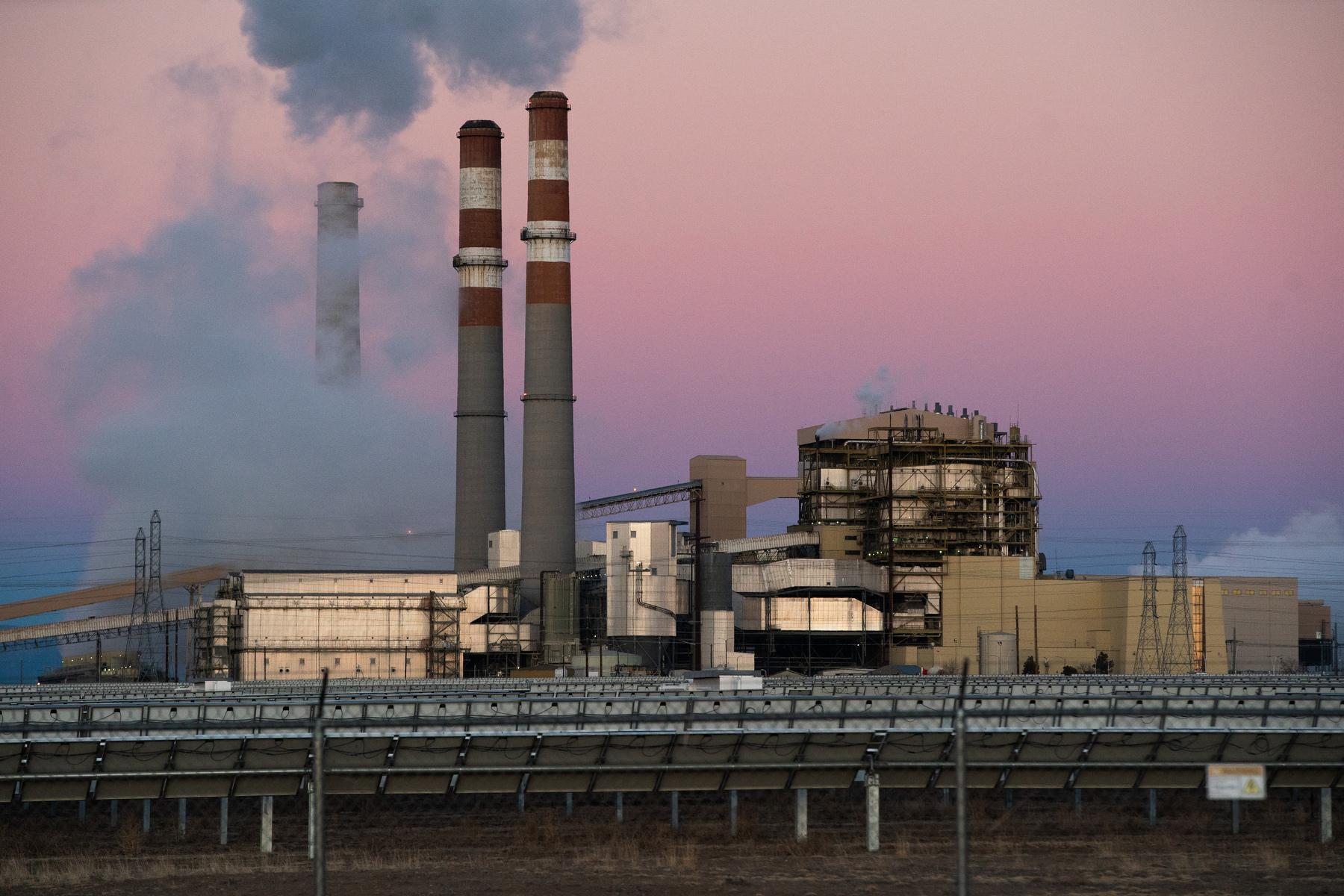
Colorado Gov. Jared Polis has — so far — resisted ordering a statewide shelter-in-place (like California and Illinois) or shutting down all nonessential businesses (like New York) to slow the spread of COVID-19.
His stated rationale is based on economics.
The governor has taken extraordinary steps: closing bars, restaurants, schools, gyms, coffee shops, tattoo parlors, hair and nail salons. And he has restricted large gatherings of all kinds, in line with CDC recommendations.
So he clearly isn’t reluctant to shut down some businesses. But shoppers?
“What spreads this virus is not economic activity per se, it’s large congregations of people, and we’re looking at trying to target where those vectors could be,” said Polis at a Friday press conference. “At the same time, we want to ease restrictions on our economy where possible, without endangering public health.”
And the early economic indicators don't look good.
About 25,000 unemployment claims have been filed in Colorado this week as thousands of businesses across the state suddenly stop normal operations. State economists slashed revenue projections for the next fiscal year by about $750 million. There is no precedent for halting the economy suddenly and indefinitely.
The vastly different approaches taken by governors across the U.S. is partly because of each state’s unique circumstances. California, among those hardest hit by coronavirus, is on the leading edge of the response, declaring a statewide shelter-in-place order on Thursday.
“People, I think, recognize the need to do more to meet this moment,” said California Gov. Gavin Newsom when he announced the order.
Nearly half of California’s population was already under localized shelter-in-place orders when Newsom issued his order. The state has more than 1,000 positive cases and at least 19 deaths.
Modeling done by the state showed COVID-19 could infect more than half California’s population, leading to the potential hospitalization of nearly 20,000 people. Newsom said the state’s facilities, however, can only handle 10,000 new hospitalizations.
“If we change our behaviors [the potential surge in cases] can come down,” Newsom said.
Illinois followed suit on Friday, ordering a shelter-in-place starting Saturday. In New York, Gov. Andrew Cuomo ordered the closure of nonessential businesses. Cuomo has expressed caution about phrases like “shelter-in-place,” saying it may make people think of mass shooters or some other type of emergency.
Still, the effect is similar. Between these three states, some 73 million Americans, almost a quarter of the U.S. population, are living under these extreme shutdown orders.
Which means, even if no additional measures go into effect, big impacts to the nation’s economy are coming.
To underscore the danger, on Friday Goldman Sachs forecast a 24 percent decline in GDP in the second quarter, noting that if the forecast was right it would be, “nearly two-and-a-half times the size of the largest quarterly decline in the history of the modern GDP statistics.”
“The sudden stop in U.S. economic activity in response to the virus is unprecedented, and the early data points over the last week strengthen our confidence that a dramatic slowdown is indeed already underway,” wrote Goldman analysts.
U.S. Senate Republicans have floated a $1 trillion economic stimulus proposal that includes direct payments to households and corporate tax cuts, but it’s fate is uncertain in the Democratically controlled House.
Polis, on the other hand, said Friday he is hopeful that Coloradans will give him no reason to issue a shelter-in-place order by heeding the current CDC guidelines, avoiding crowds and working from home to prevent the spread.
He urged Colorado’s federal delegation to pass an economic stimulus package. He also formed a committee of economic advisors to “help inform our decisions and navigate these challenging times.”
“Coloradans are counting on us to manage both the public health crisis short- and medium-term, but also the economic crisis so people can support themselves,” Polis said.









